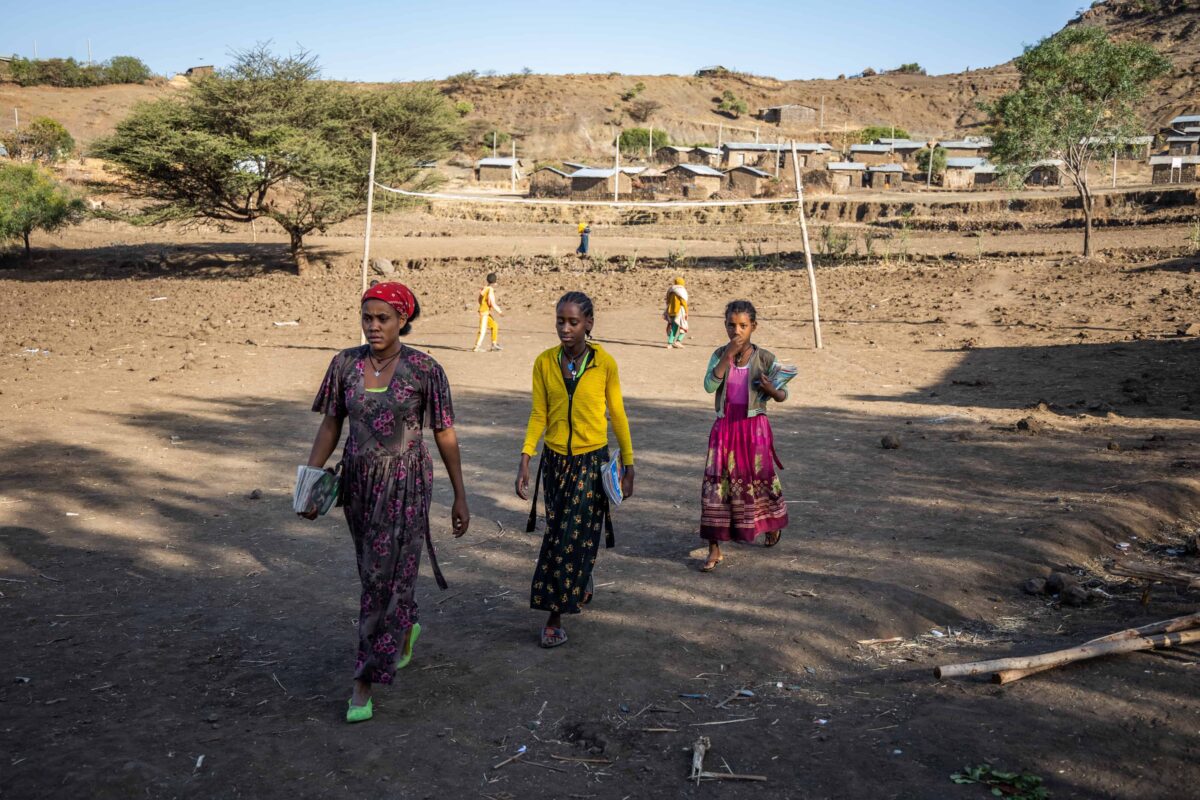Climate change is an existential threat and one of the biggest impediments to development and livelihoods. It disproportionately impacts vulnerable countries and groups, can amplify existing inequalities and is a major driver of migration. All of this is leading to increased tension and conflicts.
While climate change mitigation activities can gravitate towards efforts in areas like agriculture and business, education also plays an important role.
Building climate action into education
The education system can play a crucial role — as arguably the most local extension of the state — as a powerful, multi-sectoral platform for community change.
To address the causes of climate change, the education system can build students’ skills, knowledge and influence behaviors to reduce greenhouse gas emissions and conserve natural resources. It can also help learners gain green skills and become advocates and agents for climate action (here is a recommended primer on green skills and “A new green learning agenda").
To address the effects of climate change, the education system can build in climate adaptation and resilience to reduce its vulnerability. This includes coordinating with authorities to bolster school/household/community disaster risk reduction efforts, safe learning spaces and resilience education (drills and project-based learning). It also involves planning for sustained learning during potential school closures.

The state of education and climate change
Progress in this area is underwhelming at best. A reciente UNESCO study cubierta 100 countries concluded that nearly half (47 por ciento) of national curriculum frameworks do not reference climate change.
It also found that while 95 percent of teachers believe that it is important or very important to teach about the severity of climate change and its effects, less than 40 percent were confident in teaching it and only 20 percent felt able to explain its effects on their region or locality.
Además, 75 percent of young people say that they are frightened about their future and are demanding concrete action from governments to transform education systems to tackle the climate crisis.
Adaptation and resilience efforts are not doing better. If we learned one thing from the pandemic, it is that the education system is terribly fragile and inequitable in adapting to hazards. How can we better prepare for potential school closures and interruptions related to increasing extreme weather events and hazards?
There are reasons to be hopeful
El Paris Agreement — a legally binding international treaty on climate change — offers a framework for countries to do their part in curbing emissions and global warming. Desde 2020, countries have begun submitting their national climate action plans, o Nationally Determined Contributions, with goals across sectors, incluyendo la educación. This process, overseen by the Conferences of the Parties (COP), began to prominently feature education at the last two Climate Change Conferences (COP26 and COP27), placing education at the center of climate action.
World leaders resolved that “greening education to get every learner climate-ready” is a priority area of work, and one of the seven Global Initiatives launched at the UN Transforming Education Summit en 2022. The initiative includes a Greening Education Partnership that aims to deliver strong, coordinated and comprehensive action that will prepare every learner to tackle climate change and promote sustainable development.
Here in the United States, el USAID 2022-2030 Climate Strategy takes a whole-of-agency approach that calls on all corners of USAID to play a part in climate response. With the goal “to advance equitable and ambitious actions to confront the climate crisis,” the strategy focuses on targeted direct action and systems change. Climate guidance is emerging in all sectors across USAID, including the forthcoming Guidance for Advancing Climate Action in and through Education.
Creative’s role
Failure to mitigate climate change is one of the most severe short-term threats, but it is also the global risk society is least prepared for.
Creative brings valuable lessons from decades of education in conflict and crisis implementation, and is helping to advance climate action through education in partnership with governments to strengthen education systems around the world.
Learn how a new curriculum is helping to strengthen literacy alongside climate awareness in Morocco as part of Creative’s Reading for Success–National Program for Reading (NPR).